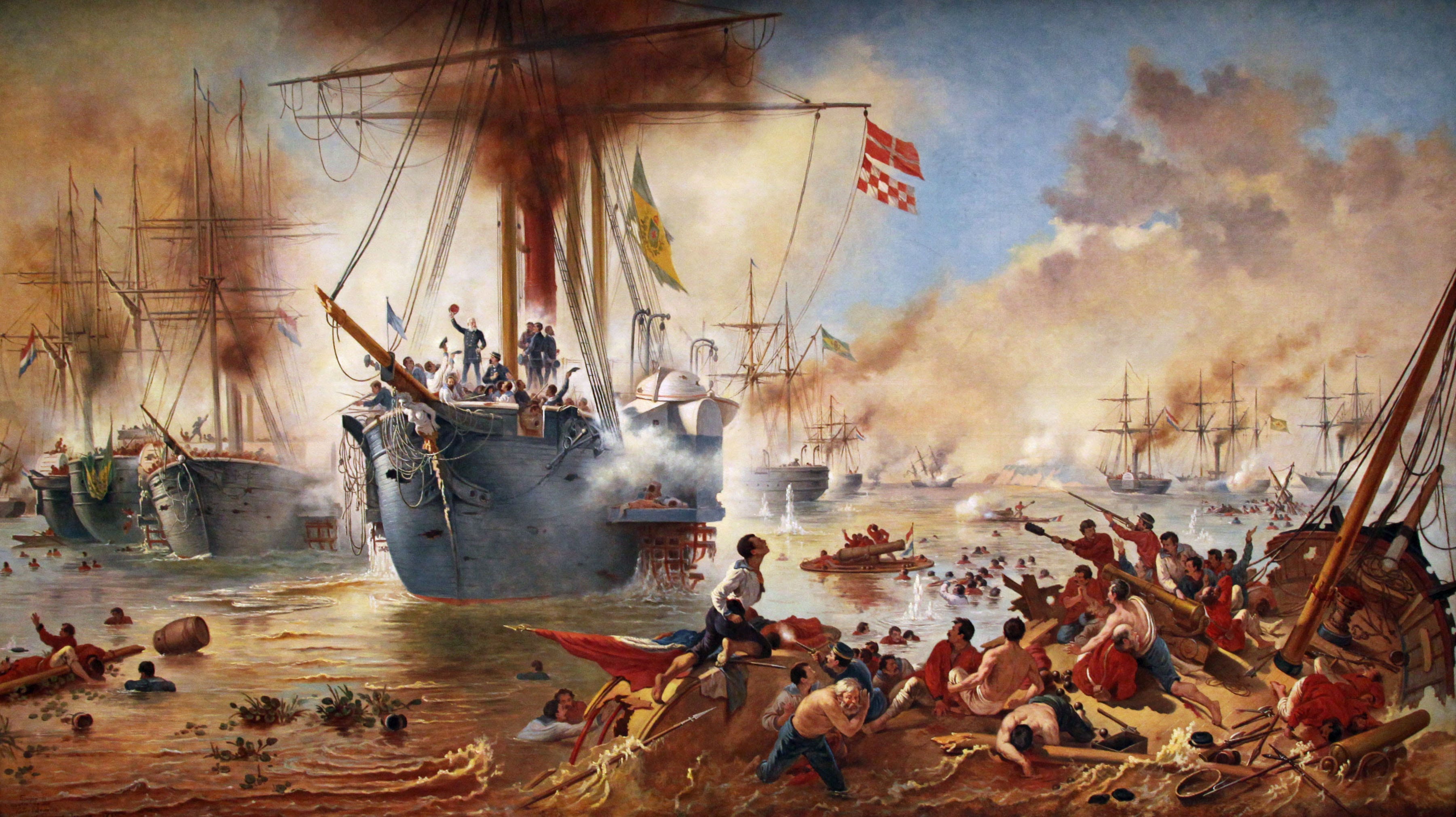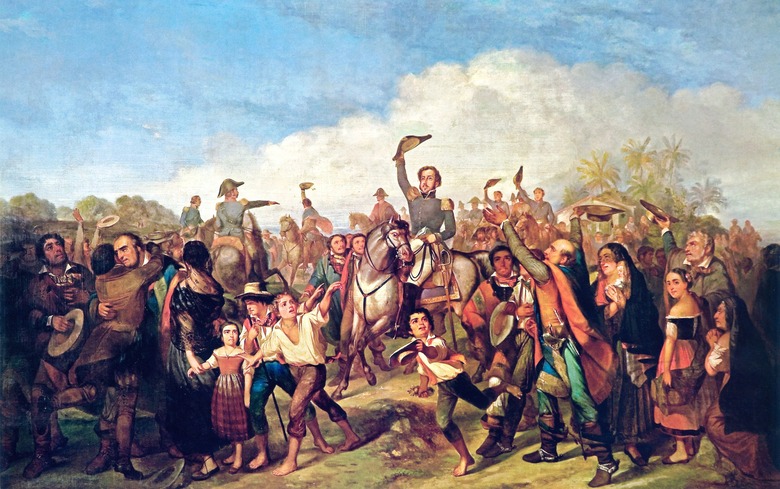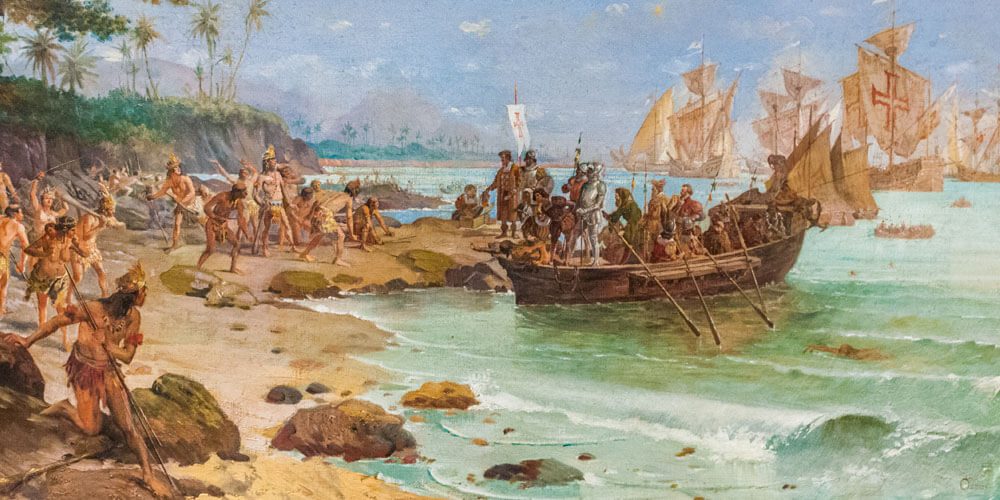Anúncios
Immerse yourself in the grandeur of the Empire Era of Brazil, a period steeped in a rich tapestry of historical events and cultural infusions that have shaped Brazil into the vibrant and diverse nation it is today. This intriguing epoch, marked by the reign of Dom Pedro II, the country’s second and last monarch, was a significant period that molded Brazil’s unique cultural identity and positioned it on the global stage.
Travel back in time to the 19th Century when Brazil was the seat of the Portuguese Empire, a time of opulence, cultural amalgamation, and political struggle. From iconic architectural marvels, to the thriving art and literature scene, to the captivating tales of power and resistance, the Empire Era embodies a wealth of fascinating narratives waiting to be explored. 🕰️
Anúncios
With this piece, embark on a journey to discover the majestic past of Brazil, unveiling its significant historical milestones, the cultural richness, and the societal transformations that occurred during the Empire Era. Uncover the tales of the monarchy, the influence of African and indigenous cultures, the intricacies of the coffee trade, and the birth of Brazil’s national identity. 🇧🇷
Indeed, the Empire Era of Brazil offers an enchanting exploration into a remarkable past that has significantly shaped the country’s present. This compelling account will intrigue history buffs, culture enthusiasts, and anyone keen on understanding the roots of Brazil’s vibrant heritage. Step into this time machine and prepare for a journey of discovery!
Anúncios
The Empire Era: An Overview
The Empire Era, a significant part of Brazilian history, was characterized by a monarchy that lasted from 1822 to 1889. This era brought about considerable socio-political changes, enhancing Brazil’s standing on the global stage.

The Monarchical Rule
The Empire Era, also known as the Império do Brasil in Portuguese, was marked by the rule of two constitutional monarchs: Emperor Dom Pedro I and Emperor Dom Pedro II. Their reigns represented a combination of the monarchy’s administrative power with parliamentary legislation, producing a uniquely Brazilian version of a constitutional monarchy. This form of government was not only innovative for its time but also effectively maintained the unity of Brazil’s vast territory.
Emperor Dom Pedro I, the nation’s first monarch, led Brazil through its initial declaration of independence from Portugal. His decisive leadership during the early years of the Empire set crucial precedents in governance and established a framework for a stable and sovereign nation. Although his reign was relatively brief, his bold political decisions laid the foundation for the future consolidation of Brazilian statehood.
Following his father’s footsteps, Emperor Dom Pedro II ascended to the throne at a young age, and his long reign became synonymous with progress and stability. Under his rule, the monarchy evolved into a true constitutional system where legislative bodies played a critical role in shaping public policy. This dynamic balance between executive power and parliamentary oversight allowed for pragmatic governance that addressed the needs of a rapidly growing and diverse society. Dom Pedro II’s commitment to modernization spurred significant investments in education, infrastructure, and technology, fostering economic development and cultural enrichment across the nation.
The monarchical rule of the Empire Era was characterized by a harmonious blend of tradition and progress. The emperors, while holding ultimate authority, collaborated closely with elected representatives, ensuring that the interests of the broader population were reflected in government decisions. This cooperation not only enhanced political stability but also unified Brazil’s extensive regions under a single, cohesive state. The legacy of this era continues to influence modern Brazilian institutions and the nation’s enduring sense of identity.
Key Events of the Empire Era
The Empire Era witnessed several important events that shaped the course of Brazilian history, leaving an enduring legacy on the nation’s political, social, and cultural fabric. One of the most pivotal events was the Declaration of Independence in 1822, when Brazil broke free from Portuguese colonial rule. This momentous act, led by Dom Pedro I, not only marked the birth of a sovereign nation but also set the stage for a new era of national identity and self-governance.

Another landmark event was the establishment of a constitutional monarchy. The coronations of Emperor Dom Pedro I and later his son, Emperor Dom Pedro II, ushered in a period of political innovation. Under their rule, Brazil developed a unique blend of monarchical authority and parliamentary legislation, ensuring both centralized administrative power and representative governance. This balance contributed significantly to the stability and unity of Brazil’s vast territory during a time of rapid change.
Perhaps one of the most transformative milestones of the Empire Era was the abolition of slavery in 1888 with the signing of the Lei Áurea, or Golden Law, by Princess Isabel. This event ended centuries of institutionalized slavery, reshaping the social and economic landscape of the nation. The abolition was a culmination of growing pressure from abolitionist movements and marked a crucial step towards modernizing Brazilian society.
The Empire Era also witnessed critical developments in infrastructure, education, and cultural enrichment, reflecting Brazil’s gradual transition toward modernization. However, the culmination of these events and the inherent political tensions eventually led to the Proclamation of the Republic in 1889. This transition signified the end of the monarchical period and paved the way for a new chapter in Brazilian history, setting the foundations for contemporary governance and national identity.
Declaration of Independence
One of the most critical events was the Declaration of Independence in 1822. This marked Brazil’s separation from Portuguese rule, with Dom Pedro I becoming the country’s first Emperor. The independence process was relatively peaceful compared to other Latin American countries, further solidifying the nascent nation’s stability.
Abolition of Slavery
The Empire Era also saw the abolition of slavery in 1888, a monumental achievement that reshaped the very fabric of Brazilian society. Slavery had been a cornerstone of Brazil’s economy and social structure for centuries, deeply entwined with the nation’s development since the colonial period. However, by the late 19th century, mounting pressure from abolitionist movements, changes in economic paradigms, and evolving moral perspectives converged to create an irreversible tide of change.
Princess Isabel, the daughter of Emperor Dom Pedro II, emerged as a pivotal figure in this historic transformation. In a bold and compassionate act, she signed the Lei Áurea, or Golden Law, on May 13, 1888. This landmark legislation officially ended the institution of slavery in Brazil, liberating an estimated four million enslaved individuals who had long suffered under brutal conditions. The signing of the Golden Law did not come without controversy; it was the result of years of intense debate, protest, and social upheaval. Many in the elite and political classes opposed the move, fearing that abolition would destabilize the economy and upend traditional power structures. Yet, the moral imperative to recognize the humanity and rights of every individual ultimately prevailed.
The abolition of slavery marked a significant turning point for Brazil. It signified not only the end of a deeply entrenched system of human bondage but also the beginning of a new era of social and economic reformation. The immediate aftermath of the Golden Law saw an influx of freed individuals seeking to redefine their lives and claim their rights as citizens. This sudden shift presented challenges, including how to integrate a newly freed population into an economy that had long relied on slave labor. The transition was complex and required reforms in education, employment, and social services to address the disparities that had been ingrained over generations.
In the broader context, the abolition of slavery was a defining moment that helped pave the way for Brazil’s modernization. It contributed to the evolving discourse on human rights and equality, inspiring future movements that continued to shape the nation’s progressive trajectory. While the road to full social and economic integration for former slaves was long and fraught with challenges, the Golden Law remains a powerful symbol of Brazil’s commitment to justice and human dignity. The abolition of slavery stands as a testament to the transformative power of legislative reform and the enduring quest for a more equitable society.
End of the Empire Era
The Empire Era officially ended in 1889 with the Proclamation of the Republic, marking a dramatic turning point in Brazilian history. Discontent among military leaders and segments of society had been simmering for years as many grew increasingly frustrated with the limitations and perceived inefficiencies of the monarchical system. This mounting dissatisfaction culminated in a well-orchestrated coup that ultimately ousted Emperor Dom Pedro II, signaling the end of over six decades of imperial rule.

With the fall of the monarchy, Brazil transitioned from a constitutional monarchy to a presidential system of governance. The new republican leaders sought to modernize the state, promote national unity, and adapt the nation to the rapidly changing social and economic conditions of the late 19th century. The shift in power also reflected broader global trends toward democratic governance and the decline of traditional monarchies. The establishment of the Republic brought hope for a more inclusive political system, though it also presented its own set of challenges and uncertainties. As Brazil embarked on this new chapter, the end of the Empire Era became a symbol of both the nation’s revolutionary change and its enduring quest for progress and modernization.
Cultural and Societal Developments
The Empire Era was not only about political events. It also witnessed significant cultural and societal developments.
Architecture
Architecture flourished during this period, with European styles heavily influencing Brazilian constructions. Examples include the Imperial Palace in Rio de Janeiro and the Theatro Municipal in São Paulo.
Literature
In literature, the Empire Era saw the rise of Romanticism, Realism, and Naturalism, with authors such as Machado de Assis and José de Alencar becoming prominent.
Impact of the Empire Era on Modern Brazil
The Empire Era had a profound influence on modern Brazil.
Political Influence
The monarchy’s centralized power structure and administrative efficiency were key to maintaining national unity, a characteristic that remains in Brazil’s federal system of governance.
Cultural Influence
Culturally, the era laid the groundwork for Brazil’s rich diversity and multiculturalism. From architecture to literature, traces of the Empire Era can be seen in today’s Brazilian society.
Exploring the Majesty of Brazil’s Empire Era
For those interested in delving deeper into this period of Brazilian history, several options are available.
- Visiting Historical Sites: Historical sites like the Imperial Palace and the Theatro Municipal offer a glimpse into the Empire Era’s architectural style.
- Reading Historical Literature: Reading works by authors like Machado de Assis can provide insights into the societal norms and values of that time.
- Exploring Museums: Museums such as the Museu Imperial and the Museu Histórico Nacional house collections that tell the story of the Empire Era.
Final Thoughts
The Empire Era was a significant period in Brazilian history, marked by political upheaval, cultural evolution, and societal reform. The legacy of this era continues to shape Brazil, influencing its political structure, cultural norms, and societal values. Understanding this era provides a deeper appreciation for Brazil’s rich history and the diversity that defines its national identity.
Conclusion
In summary, “Unveiling the Majesty of Brazil: Exploring the Rich History and Culture of the Empire Era” illuminates the extraordinary journey of Brazil during the imperial period, a crucial epoch that left a lasting imprint on the country. It’s fascinating to traverse through the pages of history and unravel the grandeur and the peculiarities of the Brazilian empire, a testament to the nation’s resilience, diversity, and cultural richness.
This exploration paints a vibrant picture of the societal transformations, influential figures, and monumental events that shaped Brazil’s evolution. However, it’s imperative to remember that understanding history is not about glorifying the past, but analyzing it critically to derive lessons that can guide future generations.
Indeed, Brazil’s imperial history is not merely a chronicle of kings and queens, but a tale of a society in transition, a narrative of change and adaptation. With this in mind, it’s clear that the legacy of the empire era continues to echo in contemporary Brazil, influencing its identity, traditions, and societal structures. Thus, by unveiling the majesty of Brazil, we’re not just exploring history, but also discovering the soul of a nation.

